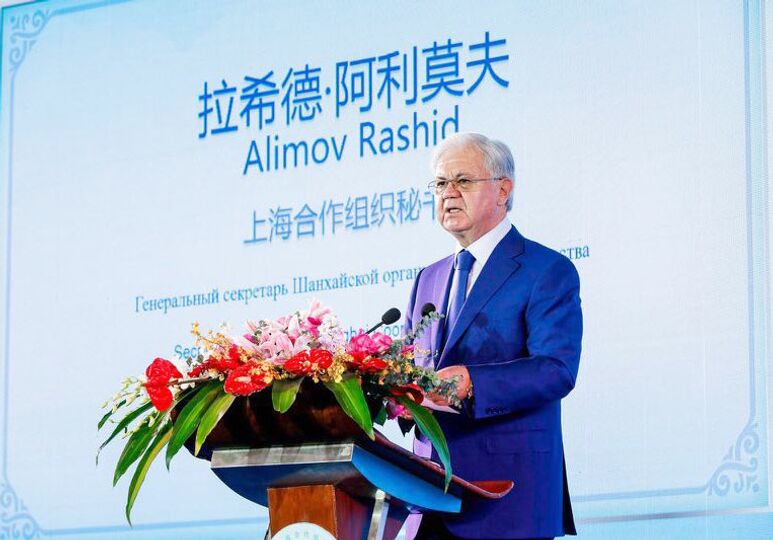On 25 October 2018, an international forum on expanding the Shanghai Spirit and facilitating the development of culture and tourism opened in Shanghai.
The forum brought together over 200 noted scientists and public activists, diplomats and experts from the SCO Family's countries. Forum delegates will review philosophical, ideological and practical aspects of the Shanghai Spirit, the key imperative of the SCO's model for diverse multilateral cooperation, in a broad context.
SCO Secretary-General Rashid Alimov was the forum's key speaker.
"The Shanghai Spirit concept, formalised in the SCO Charter, broadly defined the SCO's ideological and political essence and outlined its internal mechanisms. The principles of non-interference in the domestic affairs of all the participants and respect for their sovereignty were chosen as the unshakeable pillars of the SCO's ideology," the Secretary-General noted. "In the past 15 years, the comprehensive Shanghai Spirit concept has become firmly embedded in diplomatic vocabulary, and it has enriched the theory and practice of modern international relations," he said.
The Secretary-General dwelled in detail on the practice of expanding interstate relations in line with the Shanghai Spirit and noted that "the cooperation-by-consensus model, established by founding states in the early 21st century, has passed the test of time, and the Organisation which is following its own path has won the genuine trust of the international community."
According to the Secretary-General, "against the backdrop of the complex global processes, one thing is becoming increasingly apparent: humanity is united by a common destiny, and the fastest possible elimination of dividing lines can become a powerful impetus for ushering in an entirely new stage in the development of global civilisation. The wide range of ethnic groups, nations, religions and civilisations in the 18 countries that make up the SCO family, with a population of 3.2 billion, imparts a particularly bright multicultural tinge to the association."
The Secretary-General recalled that the SCO's humanitarian space was linked with the names of the greatest thinkers and outstanding pioneering scientists who made a priceless contribution to the development of human civilisation. The world's main religions, including Buddhism and Hinduism, Christianity and Islam, are widely represented here. Every ninth UNESCO World Heritage site is located in SCO member-states. "The SCO consistently implements its main civilisational mission: facilitating greater mutual understanding among nations, mutual cognition and permeating, the enrichment and merging of cultures and civilisations, helping popularise the customs and traditions of the nations living within the association's region. This is what brings the peoples of our countries closer together and makes them near and dear," Mr Alimov noted.
The Secretary-General believes that the SCO's Eurasian scale attests to the fact that "at the turn of the 21st century, the leaders of the founding states made the right choice that met the requirements of the early 21st century and also had a global strategic significance encompassing the broadest historical perspective," Mr Alimov said.
The subsequent discussion involved representatives of SCO member-states, diplomats accredited in China, noted scientists and leading humanities experts from China, the European Union and Southeast and Central Asia. The participants exchanged opinions on topical issues of and prospects for intra-CIS cultural-humanitarian cooperation.
The subsequent discussion involved representatives of SCO member-states, diplomats accredited in China, noted scientists and leading humanities experts from China, the European Union and Southeast and Central Asia. The participants exchanged opinions on topical issues of and prospects for intra-CIS cultural-humanitarian cooperation.
The forum is sponsored by the Shanghai Academy of Social Sciences, the State Research Centre for Inter-Cultural Exchanges and the Shanghai City Hall.
